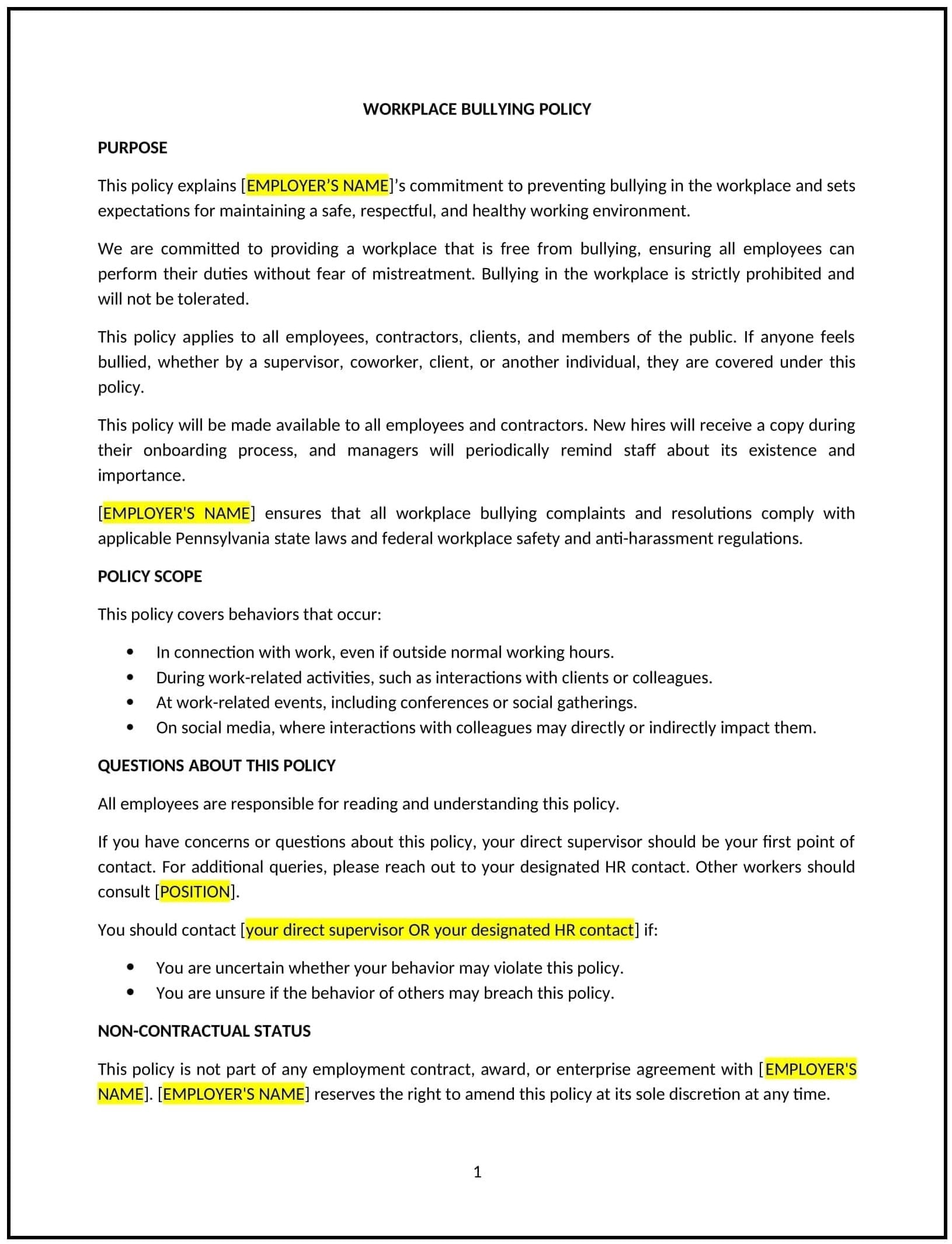Workplace bullying policy (Pennsylvania): Free template
Got contracts to review? While you're here for policies, let Cobrief make contract review effortless—start your free review now.

Customize this template for free
Workplace bullying policy (Pennsylvania)
This workplace bullying policy is designed to help businesses in Pennsylvania create a safe, respectful, and inclusive work environment by addressing and preventing bullying behaviors. By defining unacceptable conduct, outlining reporting procedures, and emphasizing preventive measures, this template ensures businesses can reduce risks and support employee well-being.
By using this template, businesses can foster a positive workplace culture, enhance employee trust, and comply with Pennsylvania workplace standards.
How to use this workplace bullying policy (Pennsylvania)
- Define bullying behavior: Clearly outline what constitutes workplace bullying, such as verbal abuse, threats, exclusion, or spreading false information about colleagues.
- Include reporting procedures: Provide clear steps for employees to report bullying incidents, including designated contacts and confidentiality assurances.
- Establish investigation protocols: Detail how complaints will be handled, including timelines, impartiality, and follow-up actions.
- Emphasize prevention: Highlight the importance of awareness, training, and regular communication to reduce bullying incidents.
- Reflect Pennsylvania-specific considerations: Tailor the policy to address local workforce dynamics or industry-specific challenges unique to Pennsylvania.
Benefits of using a workplace bullying policy (Pennsylvania)
A well-structured workplace bullying policy supports employee well-being and workplace harmony. Here's how it helps:
- Promotes respect: Encourages a positive workplace culture by addressing and preventing bullying behavior.
- Reduces risks: Minimizes the likelihood of conflicts, turnover, or reputational damage caused by workplace bullying.
- Enhances trust: Demonstrates a commitment to employee safety and support, fostering a sense of trust and inclusion.
- Supports compliance: Aligns with Pennsylvania labor laws and workplace standards, minimizing potential legal risks.
- Reflects local needs: Considers Pennsylvania-specific workplace dynamics, such as prevalent industries or workforce trends.
Tips for using a workplace bullying policy (Pennsylvania)
- Communicate the policy: Share the policy with employees and managers during onboarding and ensure it is easily accessible for reference.
- Provide training: Offer regular training programs to help employees and managers identify, address, and prevent workplace bullying.
- Monitor workplace culture: Regularly assess employee feedback and workplace dynamics to identify potential bullying behaviors.
- Maintain records: Document reports, investigations, and resolutions of bullying incidents to ensure accountability and transparency.
- Review periodically: Update the policy to reflect changes in Pennsylvania laws, workplace practices, or employee needs.